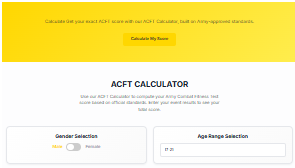Buying a home is one of the biggest investments you’ll ever make. In Canada, where the housing market is competitive and prices continue to climb, it’s tempting to skip certain steps to close a deal faster. But one thing you should never overlook is a home inspection. Even in a hot market, skipping this step can be costly in the long run. Here are the top reasons why a home inspection is an essential part of the home-buying process in Canada.
1. Uncover Hidden Problems You Can’t See
- Structural Issues: The most significant problems often aren’t visible during a standard showing. Foundation issues, structural weaknesses, or even compromised beams might not be immediately noticeable, but an inspector will identify them. These can be expensive to fix and may affect your safety and comfort.
- Water Damage & Mold: Canada’s diverse climate, from cold winters to rainy springs, can create the perfect conditions for water damage and mold growth. A home inspection can catch these problems, which can be hidden behind walls or beneath flooring, before they become an expensive headache.
2. Avoid Surprise Costs After Closing
- Costly Repairs: A seemingly perfect home could hide significant issues that may require costly repairs. An inspector checks for things like faulty wiring, plumbing issues, roofing problems, and HVAC malfunctions—issues that could cost thousands to fix after you’ve moved in.
- Energy Efficiency: An inspector also assesses the home’s energy efficiency. In Canada, where winters can be harsh, having poor insulation or an outdated heating system can lead to sky-high energy bills. Inspections can highlight these inefficiencies so you can either negotiate repairs or factor them into your budget.
3. Negotiate a Better Deal
- Price Adjustments: If the inspection reveals major issues, you can negotiate with the seller for a price reduction or ask for the repairs to be made before closing. Without an inspection, you risk overpaying for a home that requires significant work.
- Repairs Before Closing: In some cases, you can have the seller address the problems found in the inspection report before you complete the sale. This can save you time and money after you’ve already moved in.
4. Ensure the Home is Safe
- Electrical Hazards: Faulty wiring is a major safety risk. An inspector will check if the home’s electrical system is up to code, properly grounded, and free of any potential fire hazards.
- Gas Leaks: In a country like Canada, where many homes are heated with gas, ensuring that the gas lines are intact and not leaking is critical. A home inspection can identify gas leaks or issues with the furnace, preventing dangerous situations.
- Carbon Monoxide: A certified home inspector will test for carbon monoxide in the home, which is often undetectable without proper equipment but can be deadly.
5. Catch Issues with the Home’s Systems
- Plumbing: You might think plumbing issues are easy to spot, but often, problems can be hidden behind walls or under floors. Leaky pipes, inadequate water pressure, or drainage problems can lead to bigger issues, like water damage and mold growth, if left unchecked.
- Heating and Cooling Systems: Whether it’s the furnace, air conditioning, or ducts, your inspector will test the systems to ensure they work as expected. Especially in Canada, where winters can be brutal, having a functioning heating system is essential for your comfort and safety.
6. Protect Yourself from Expensive Legal Troubles
- Warranty Issues: Many new homes come with builder warranties, but these typically only cover certain repairs. If you skip the inspection and later find major issues, the builder may not be responsible for fixes that weren’t caught during the initial inspection.
- Disclosure Gaps: Sellers are legally obligated to disclose certain defects in a home, but some might fail to do so, whether intentionally or by mistake. A home inspection protects you by identifying any undisclosed problems, which could save you from costly legal battles after you’ve closed the deal.
7. Identify Environmental or Climate-Specific Risks
- Climate-Related Issues: Canada’s weather presents unique challenges for homeowners. A home inspection will check for risks like inadequate insulation, roofing issues, and drainage problems. Poorly installed drainage systems can lead to basement flooding, a significant issue in many Canadian homes, especially during spring thaws.
- Radon and Asbestos: In some areas of Canada, radon levels are higher than the national average, which can pose serious health risks over time. If you’re buying an older home, an inspection can also check for the presence of hazardous materials like asbestos, which is still found in some buildings built before the 1990s.
8. Get Peace of Mind
- Confidence in Your Purchase: A thorough inspection offers peace of mind. After spending years saving for a home, you deserve to know that the property you’re investing in is safe, sound, and free from hidden issues. This gives you the confidence to proceed with the purchase without the looming worry of unexpected repairs.
- Future Planning: If the inspection finds minor issues, you’ll have a clear understanding of what needs to be addressed, and you can plan accordingly. Knowing the home’s condition can help you budget for any repairs or upgrades you might want to make down the road.
9. Don’t Assume New Homes are Perfect
- Even New Builds Have Issues: Many buyers believe that new homes are problem-free, but that’s not always the case. From poor craftsmanship to unfinished work, newly built homes can have hidden issues, which an inspection can identify before you move in. Whether it’s a leaky roof or faulty wiring, issues that are missed during construction can be costly to fix if they aren’t addressed before closing.
- Warranties May Not Cover Everything: Many new homes come with warranties, but these warranties often don’t cover everything. For example, cosmetic flaws or issues that develop from improper maintenance won’t always be covered. A home inspection can identify issues early on, allowing you to request repairs from the builder before you close.
10. Ensure a Smooth Closing Process
- Avoid Last-Minute Surprises: If you discover problems with the home just before closing, it can delay the process and cause frustration. A thorough home inspection allows you to identify any issues in advance, giving you time to resolve them with the seller. Without one, you might be caught off guard, risking a delay in closing or worse, a deal that falls through entirely.
Conclusion
Skipping a home inspection in Canada might seem like an easy way to save time or money, but it’s a risk that’s rarely worth taking. Even in a competitive housing market, ensuring that the home you’re about to buy is structurally sound, free from hidden problems, and safe for you and your family is essential. A home inspection in canada protects your investment and gives you the confidence to proceed with your purchase knowing exactly what you’re getting into.
So, whether you’re buying a charming older home or a brand-new build, don’t skip the inspection. It’s a small investment that can save you thousands of dollars, endless stress, and even your safety. Your future self will thank you.




Leave a Reply